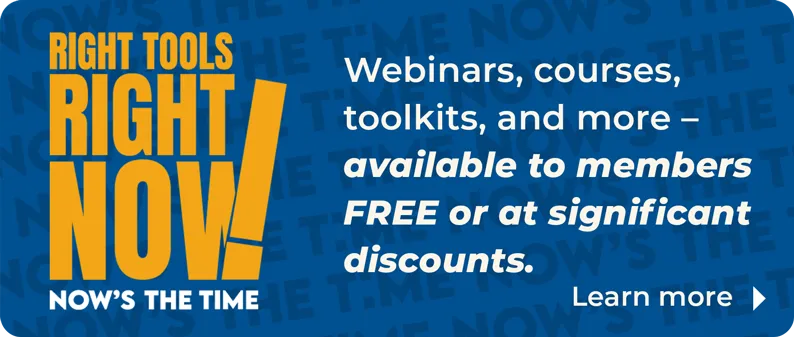
In today’s housing market, negotiation isn’t just a skill—it’s a necessity. With inventory rising and home prices cooling off, buyers have more leverage than they’ve had in recent years. The National Association of REALTORS® reports that the mix of greater inventory and slower appreciation is creating fresh opportunities for negotiation on the buyer’s side.
This shift presents both a challenge and an opportunity for your brokerage. Agents who entered the profession during the COVID-19 pandemic, when homes regularly received multiple offers within hours, may be less prepared for today’s back-and-forth dynamics. NAR reports that 27% of agents joined the business after 2020, meaning over a quarter of the workforce hasn’t navigated a higher-rate, balanced market before.
That’s where strong leadership comes in: You must equip your agents with the resources to negotiate confidently and advocate effectively for their clients.
Steps for Brokers to Help Agents Sharpen Negotiation Skills
You play a vital role in preparing agents with the skillset they need to handle transactions. When it comes to sharpening negotiation skills, here are a few steps that can help:
Teach the Power of Preparation
A large segment of the industry is still relatively “green” when it comes to shifting markets. For example, when many newer agents joined the market, mortgage rates were at historic lows of 2% – 3%. Today’s rate, which hovers around 6.3%, is closer to the long-term average seen over the past two decades, and it’s unlikely rates will ever fall that low again.
You can close this experience gap by offering structured training through mentorship and scenario-based workshops. This kind of preparation ensures your agents don’t enter negotiations underprepared, which can lead to missed opportunities, client dissatisfaction or even lost deals.
The best negotiators walk in with facts and evidence to back up their numbers. Train your agents to analyze property history and broader market trends so they’re equipped with the tools they need to negotiate effectively. Well-prepared agents not only secure better outcomes, but they also build trust with clients, which reflects positively on your brokerage and strengthens your reputation.
Role-Play Real Scenarios
Negotiation skills improve with practice, and you can create environments in the office where agents sharpen those muscles. Running through transaction scenarios, covering everything from appraisal disputes to inadequate offers, helps agents anticipate objections and refine their delivery. This type of training also builds confidence for newer agents who may be navigating negotiations for the first time.
Balance Assertiveness with Empathy.
Great negotiators know when to push and when to listen. You should emphasize training that goes beyond hard numbers to focus on client motivations. For example, a seller or buyer facing job relocation may value a quicker closing timeline as much as the price itself.
Agents who practice active listening can uncover these priorities and craft win-win solutions. Empathy-driven negotiation strengthens client relationships and boosts referrals.
Leverage Technology and Data
Your agents will negotiate more effectively when they back their positions with solid data. Encourage your team to use tools like NAR’s Market Statistics Dashboard, which delivers monthly insights on affordability, prices and sales trends. Many local associations also provide monthly and even weekly data that focuses on your region’s specific housing statistics. Real-time data not only sharpens your agents’ negotiation positions but also enhances their credibility with clients.
With AI playing a bigger role in daily business, it’s important for brokers and agents to adopt emerging tools that help them interpret market data more effectively. According to a 2024 Orlando Regional REALTOR® Association survey, nearly half of members already used AI-powered tools like ChatGPT—and this number has only increased since then. With AI-supported data, agents can justify pricing and highlight value to support their claims.
While technology strengthens the case, it’s still the agent’s personal connection and credibility that closes the deal. Brokers should encourage the adoption of these tools while reinforcing the importance of pairing data with human expertise.
Emphasize Continuous Learning
Negotiation strategies aren’t static; they evolve with market dynamics. During the pandemic, when buyers had little leverage, speed and escalation clauses dominated conversations. Now, with more balanced inventory, negotiations often focus on concessions, rate buydowns and inspection credits.
Encourage your agents to pursue advanced certifications and continuing education programs offered by NAR and local associations. You can also hold trainings in your office. Consistent professional development ensures your agents stay agile and effective.
Equipping Your Agents for Success
As a broker, sharpening your team’s negotiation skills isn’t just about closing more deals; it’s about building your firm’s reputation and long-term business resilience. Clients expect agents who can anticipate challenges and craft creative solutions. By investing in preparation, practice, empathy, data and continuous learning, you elevate not only your agents’ performance but also your firm’s standing in the marketplace.
Negotiation is fundamental. When you make it a training priority, your teams will be better positioned to thrive in today’s market and better prepared for the markets to come.









